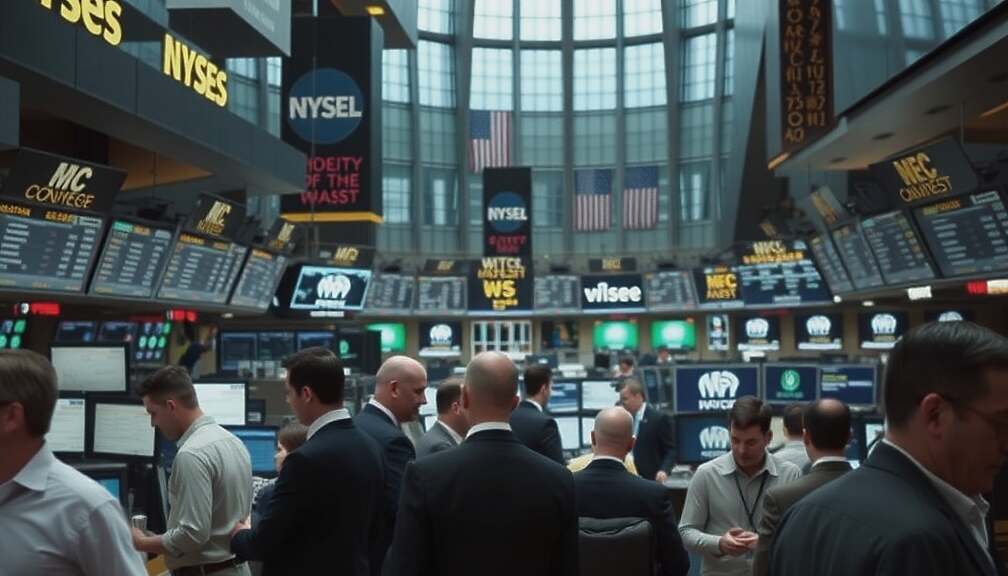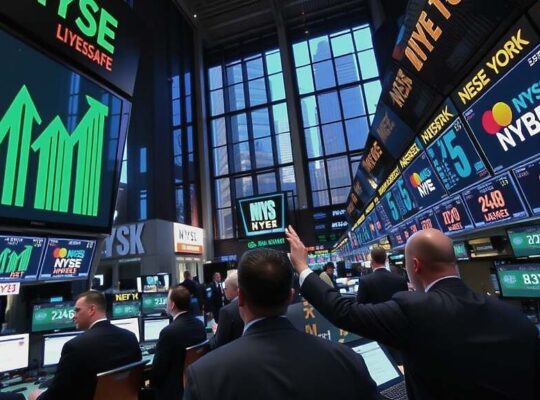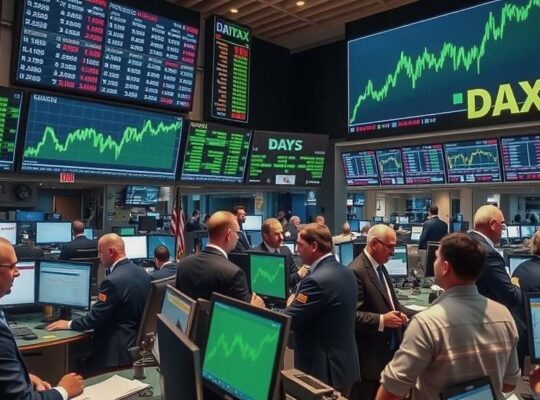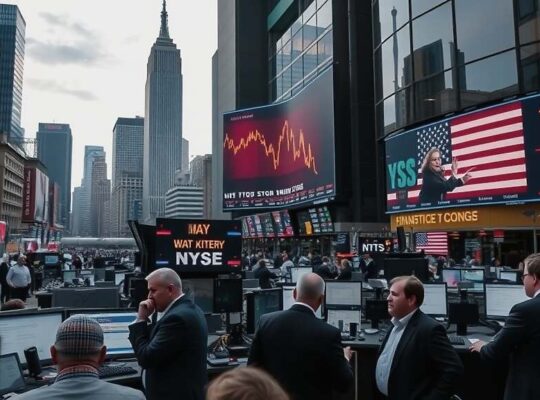German equities experienced a modest uptick on Thursday, with the DAX index closing at 24,208 points, a 0.2% gain compared to the previous day’s close. The initial trading session saw the index dip below the previous day’s level, a trend subsequently reversed during afternoon trading. However, the underlying sentiment reveals a growing unease amongst investors related to the continued dominance of technology giants.
The underwhelming response to SAP’s latest earnings report, echoing investor reactions to Netflix and Tesla in the US, highlights concerns that the peak of growth may have been reached for these large tech firms. Christine Romar, Head of Europe at CMC Markets, observed a shift in investor expectations, suggesting that the previously assured ability to exceed previously ambitious forecasts is now faltering. She questioned whether companies are now grappling with the reality of tempering that expectation.
This fragility has broader implications for the market, particularly given the inability of US indices to regain their pre-Trump trade war highs. Romar believes this could signify a temporary pause in the almost three-year bull market. A pivotal moment is anticipated next week, when five of the widely-tracked “Magnificent Seven” companies will release their balance sheets and provide future outlooks, potentially serving as a true bellwether for the market’s direction.
Within the DAX, Siemens Energy led the gainers until shortly before market close, while Infineon and Deutsche Telekom were at the bottom of the performance table.
Beyond equity performance, rising energy prices are creating a new layer of economic pressure. Natural gas prices surged, reaching €32 per megawatt-hour for November delivery – a 2% increase from the previous day. This escalation is likely to translate to consumer electricity prices of at least 8 to 10 cents per kilowatt-hour, including taxes and fees, if sustained. Simultaneously, the price of Brent crude oil jumped significantly, reaching $65.61 per barrel, a 4.8% increase, potentially fueling inflation fears and impacting overall economic sentiment.
The euro also weakened slightly against the US dollar, trading at $1.1609, reflecting broader anxieties about the European economic outlook and the potential for further monetary policy divergence. The combination of these factors paints a complex picture, suggesting the market is entering a period of increased volatility and greater scrutiny of the long-held assumptions that have driven recent growth.












